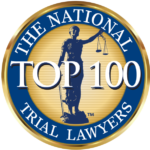The “#MeToo” national wave of women’s sexual harassment complaints has left a noticeable mark on the workload of the U.S. Equal Employment Opportunity Commission.
Charges filed with the EEOC regarding sexual harassment by both men and women alleging workplace discrimination increased by 13.6 percent during fiscal year 2018, which ended on September 30, over the previous year. There were 7,609 such charges filed in 2018 compared to 6,696 in 2017. It was the first time in a decade that the EEOC registered a year-to-year increase in the number of employment sexual harassment complaints. The statistics have been updated from prior numbers released by the agency in October.
The EEOC reported the increase on October 4, near the one-year anniversary of the New York Times and New Yorker Magazine Pulitzer Prize winning articles that took down Hollywood film producer Harvey Weinstein and galvanized support for the #MeToo movement. The two publications first reported a year ago that dozens of women had accused Weinstein of rape, sexual assault, and sexual abuse over a period of at least 30 years. More than 80 women in the film industry later also accused Weinstein of such acts. On May 25, 2018, Weinstein, 66, was arrested in New York City, charged with rape and other offenses, and released on bail while awaiting trial.
The EEOC itself filed 66 harassment lawsuits in 2018 against employers, including 41 that included allegations of sexual harassment. That number reflects more than a 50 percent increase in suits challenging workplace sexual harassment in the courts over fiscal year 2017.
The EEOC recovered nearly $70-million for the victims of sexual harassment through litigation and administrative enforcement in FY2018, up from $47.5-million in FY2017.
Acting EEOC Chair Victoria Lipnic said the agency had “stepped up to the heightened demand of the #MeToo movement to make clear that workplace harassment is not only unlawful, it is simply not acceptable.”
The EEOC’s training program, “Respectful Workplaces,” which teaches skills for employees and supervisors to promote and contribute to respect in the workplace, has been in high demand since it was launched in October 2017. Over 9,000 employees and supervisors in the private, public, and federal sector work forces participated in the EEOC trainings during FY2018. An additional 13,000 employees participated in EEOC’s anti-harassment compliance trainings.
The EEOC is the federal government agency responsible for enforcing federal laws that make it illegal to discriminate against a job applicant or an employee because of the person’s race, color, religion, sex (including pregnancy, gender identity, and sexual orientation), national origin, age (40 or older), or disability or genetic information.




